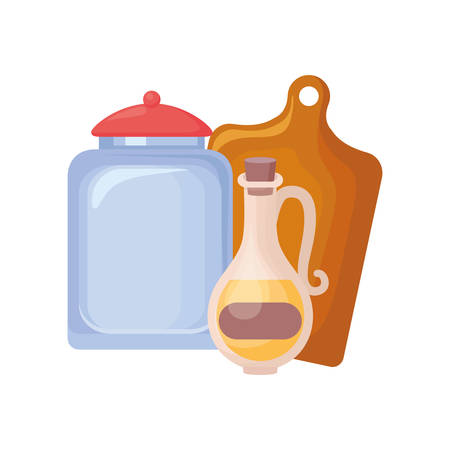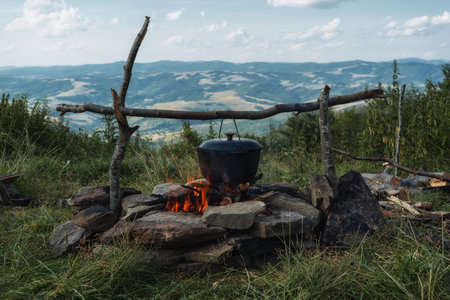Introduction to British Camp Cooking
Outdoor cooking in the UK is an experience steeped in both tradition and challenge. The British countryside, with its rolling hills, misty mornings, and unpredictable weather, offers a unique backdrop for camp cooking that stands apart from other parts of the world. From the windswept fells of the Lake District to the rugged coastlines of Cornwall, preparing meals outdoors demands not only resourcefulness but also an appreciation for simplicity and local flavour. Whether you’re brewing a cuppa on a blustery morning or sizzling sausages over a smoky firepit, camp cooking here is about making do with what you have, embracing the elements, and relishing the camaraderie that comes from sharing food under canvas. For beginners, understanding the essential equipment required is crucial—not just for survival, but for enjoying everything the British wild has to offer. In this comprehensive review, we’ll explore the must-have kit for anyone looking to embark on their first outdoor culinary adventure across Britain’s diverse landscapes.
2. Must-Have Cookware for British Campsites
When you’re gearing up for a proper British camping adventure, your choice of cookware isn’t just about slinging a pan in the boot and hoping for the best. It’s about balancing rugged durability with the traditions that make campsite cooking such a beloved part of UK outdoor culture. Here’s a hard-nosed look at the pots, pans, and kettles every beginner should consider before heading into the wilds—or even a well-appointed caravan park.
Cast Iron vs. Aluminium: The Great Debate
The battle between cast iron and aluminium is as old as British camping itself. Cast iron offers unbeatable heat retention and that classic feel, perfect for simmering stews or frying up a morning bacon sarnie over an open fire. Aluminium, on the other hand, is lightweight and quick to heat—ideal if you’re trekking through the Lake District or pitching up at a remote spot where every ounce counts.
| Cookware Material | Pros | Cons |
|---|---|---|
| Cast Iron | Excellent heat retention; traditional; virtually indestructible; ideal for campfires | Heavy; requires seasoning and maintenance; can rust if neglected |
| Aluminium | Lightweight; heats quickly; easy to clean; often comes non-stick coated | Prone to warping over high heat; less durable than cast iron; can dent easily |
| Stainless Steel | Rust-resistant; durable; easy to clean; works on most stoves | Poor heat distribution compared to cast iron; heavier than aluminium |
Kettles: A Non-Negotiable British Staple
No British camp kitchen is complete without a kettle. Whether you favour a classic whistling design or a compact, collapsible model, the ability to brew up is sacrosanct. Look for wide-based kettles that boil quickly on both gas stoves and open fires, and opt for stainless steel or enamel-coated models that can take a beating without losing their charm.
Pots & Pans: Sizes and Sets to Consider
A proper set should cover all bases without weighing you down. For most beginners, a two-pot system (one large for boiling and one small for sauces or porridge), plus a sturdy frying pan, will see you right. If space is tight, nesting sets designed for backpackers are worth their salt—just ensure they lock together securely and don’t rattle around en route.
Top Tips for Choosing Camp Cookware in Britain:
- Go for versatility: Pots that double as serving bowls or storage containers save space and weight.
- Lid matters: Always pick pans with lids—they speed up cooking time and keep out unwanted wildlife.
- Handles count: Removable or foldable handles help with packing but must be robust enough for real camp use.
- Think local: Some British brands have crafted outdoor cookware with our climate and traditions in mind—always check reviews before buying cheap imports.
The right cookware doesn’t just make meal prep easier—it keeps spirits high when the weather turns typically British. Choose wisely, maintain your kit, and you’ll be ready to tackle everything from beans on toast to full English breakfasts under canvas.

3. Stoves and Fire Setups for the British Outdoors
When it comes to camp cooking in the UK, your choice of stove or fire setup can make or break your outdoor experience. The unpredictable British weather and strict regulations around open flames mean that selecting the right equipment isn’t just a matter of taste, but also of safety and legality. Let’s dive into the main types of stoves you’ll encounter on British soil and discuss the ins and outs of campfires in the countryside.
Gas Stoves: Fast, Reliable, and Favoured by Many
Gas canister stoves are arguably the most popular option among UK campers. These stoves are prized for their quick ignition, consistent flame control, and ease of use—even when the rain’s coming sideways. Brands like Campingaz and Jetboil are staples in British rucksacks, with screw-on gas cartridges readily available at most outdoor shops. However, remember that butane/propane mixes can struggle in very cold conditions. Importantly, always pack out empty canisters—discarding them is both illegal and frowned upon in wild spaces.
Spirit Stoves: Lightweight Simplicity for Minimalists
Methylated spirit (meths) stoves appeal to those who value minimal kit and enjoy a quieter pace. Trangia is a classic Swedish brand beloved by Duke of Edinburgh Award participants across Britain. Spirit stoves burn cleanly, are nearly silent, and meths is widely available at hardware shops. Downsides? They’re slower to boil water and more susceptible to wind. Always use them with proper windshields, and remember that carrying liquid fuel requires careful storage to avoid leaks.
Solid Fuel Stoves: Compact Solutions for Emergencies
Solid fuel stoves—think Esbit tabs or British Army hexamine blocks—are ultra-compact and ideal for short trips or as an emergency backup. They’re light enough to slip into any daypack and will get your brew going even if you’ve run out of patience (or gas). But they burn with a strong smell, can blacken pots quickly, and aren’t suitable for large group meals.
The Realities of Campfires in Britain
Romantic as they may seem, traditional campfires are usually off-limits in much of the UK’s wild areas due to strict land access laws, wildfire risks, and fragile ecosystems. On National Trust or Forestry England land, open fires are almost always banned unless within provided fire pits on official sites. If you must have a fire, use a raised firebox or portable fire pit, keep it small, never leave it unattended, and extinguish it thoroughly before leaving. Always check local bylaws before striking a match—a careless fire could see you facing hefty fines or worse.
Campfire Etiquette: Leave No Trace
Respect is key in the British outdoors. Don’t scar the landscape with burnt patches or leftover charred wood; take all ash with you if possible. Stick to established cooking areas at campsites whenever practical. In Scotland’s Access Land, responsible wild camping sometimes allows for small fires—but only if you follow the Scottish Outdoor Access Code religiously.
In summary, choose your cooking setup based on reliability, legal restrictions, environmental impact, and your personal style. Master these basics now; you’ll thank yourself when you’re brewing tea under grey British skies with not a soul—or a warden—in sight.
4. Utensils, Knives, and Tools: What You Really Need
When it comes to British camp cooking, packing a shedload of gadgets is a rookie mistake. The real secret is to keep things pared down and practical—tools that survive the weather, won’t snap at the first sign of a stubborn carrot, and can be relied on for countless cuppas and fry-ups. Here’s an honest look at what you truly need in your kit bag, what’s just dead weight, and which British brands deliver proper outdoor gear.
The Essentials: No-Nonsense Kit List
| Item | Why You Need It | Top British Brands |
|---|---|---|
| Robust Camping Knife | For prepping veg, slicing bread, and general campcraft. Look for stainless steel or carbon steel blades. | Opinel (UK stockists), Whitby Knives |
| Cooking Spoon & Spatula | Stirring stews, flipping bacon—wooden or heat-resistant nylon is best. | Lifeventure, Vango |
| Tongs | Handling hot pans and sausages on the grill without singeing your knuckles. | Outwell, Highlander |
| Mug & Cutlery Set | A sturdy mug for tea; knife, fork, spoon—go metal for longevity. | Lakeland (for enamelware), Wildo (UK distributors) |
| Bottle Opener & Tin Opener Combo | No point lugging beans if you can’t get the tin open. Doubles up as bottle opener for post-hike beers. | Lifesystems Multi-tool, Victorinox (UK stockists) |
| Chopping Board (Small) | Saves your knees and keeps your knife sharp. Go for lightweight bamboo or plastic. | Kampa, Outwell |
What to Leave Behind: The Overrated Extras
- Corkscrews: Most UK camping wines come with screw-tops these days—save the space.
- Specialist Graters or Peelers: Not needed unless you’re planning gourmet feasts; a decent knife does both jobs in a pinch.
- Plastic “Camping” Sets: These often break after one use. Invest once in metal or hardwood and never look back.
Toughness Matters: Choosing Reliable British Brands
If you’re camping in the Lakes or Dartmoor, rain and grit will test your gear. Trust established names like Lakeland, Vango, and Highlander, all of whom build their kit with the unpredictable British weather in mind. A good blade from Whitby Knives, or a classic enamel mug from Lakeland, will outlast dozens of cheap imports—and there’s no substitute for tools that feel right in your hands after a wet morning brew-up.
The Hard Truth:
The fewer tools you pack, the more you’ll appreciate each one. Choose tough over trendy every time. A reliable knife and solid spoon will see you through anything from black pudding breakfasts to late-night marshmallow toasting—rain or shine.
5. Food Storage and Hygiene in the UK Wilderness
When venturing into the unpredictable British outdoors, ensuring your food remains fresh and safe is as vital as having a reliable stove or kettle. The UK’s countryside teems with inquisitive foxes, badgers, squirrels, and the occasional bold crow, all eager to raid an unguarded supply. To outsmart local wildlife and damp conditions, invest in airtight containers or robust dry bags—preferably those designed for odour control. These will keep your provisions dry during downpours and less likely to attract attention from four-legged opportunists.
Practical Food Storage Solutions
Consider bringing collapsible cool bags with reusable ice packs for perishable goods, especially if you’re car camping. For longer treks, ration portions into zip-sealed pouches to limit exposure each time you eat. Always hang food supplies from a tree branch using sturdy cord where possible, positioning them away from your sleeping area to avoid midnight visitors.
Hygiene and Clean Camps
Mud, rain, and wind are part of any true British wild camp experience. To maintain a sanitary cooking environment, bring biodegradable wipes or pack a small washing up bowl with eco-friendly soap. Scrub utensils immediately after use, and always dispose of greywater at least 50 metres from any water source to prevent contamination. Keep a dedicated rubbish bag on hand—foxes can easily tear through thin plastic, so opt for thicker sacks or even animal-proof containers if camping for several nights.
Weatherproofing Your Supplies
With sudden showers always lurking on the horizon, store all food and waste in waterproof bags when not in use. Double-bagging is a simple but effective trick against unexpected leaks or persistent drizzle. If you’re pitched on sodden ground, elevate your stores on rocks or logs to avoid saturation. Remember: a clean camp deters pests and ensures your provisions remain edible—essential for both morale and survival in the British wilds.
6. Classic British Camp Cooking Accessories
No comprehensive review of essential British camp cooking kit would be complete without a respectful nod to the timeless accessories that have defined outdoor cuisine for generations. Beyond your core pots and pans, it’s these classic extras—mugs, flasks, and toasting forks—that inject a true sense of British heritage and home comfort into any adventure.
Mugs: The Heart of the Camp
The humble enamel or stainless steel mug is an icon of British camping culture. Whether you’re sipping strong builder’s tea as the mist rolls over the fells or enjoying a well-earned hot chocolate by the fire, these mugs are robust, practical, and unpretentious. Their durability means they can take a beating in your rucksack and still deliver that all-important cuppa when spirits need lifting most.
Flasks: Warmth on Demand
No Brit worth their salt heads into the wild without a trusty flask filled with something warming—be it tea, coffee, or even a tot of whisky for those particularly bracing evenings. A quality vacuum flask not only keeps drinks hot for hours but also offers a literal taste of home when weather turns grim. Look for leak-proof designs and consider classic British brands like Thermos or Stanley for reliability.
Toasting Forks: Fireside Rituals
Few things evoke the nostalgic charm of British campfires quite like toasting forks. From marshmallows to crumpets, these simple metal implements transform the ordinary into ritual. A sturdy fork allows you to toast bread for breakfast or skewer sausages at dusk, all while swapping stories around glowing embers—a tradition woven into the fabric of UK outdoor life.
A Nod to Heritage and Comfort
These classic accessories aren’t just about function; they carry with them generations of British outdoor tradition. Packing them means embracing both practicality and a deep-seated sense of comfort rooted in national identity. In short, mugs, flasks, and toasting forks may seem like small details, but they’re what turn a basic camp meal into a quintessentially British experience—one where warmth, camaraderie, and heritage take centre stage.
7. Conclusion: Packing for Success in the British Outdoors
As you prepare to take on the unpredictable and often unforgiving British outdoors, having the right camp cooking equipment is not just a matter of comfort—it’s a matter of survival and satisfaction. Let’s recap what you need to make sure your kit is as ready as you are.
Recap: What Every Beginner Needs
- Sturdy Stove: Whether it’s a reliable gas canister stove or a classic Trangia, make sure it’s up to the task of withstanding wind and rain.
- Weatherproof Cookware: A lightweight but robust pan set—preferably non-stick for easy cleaning in cold streams—is essential.
- Sharp, Reliable Knife: Invest in a proper bushcraft knife; don’t rely on flimsy multitools when preparing meals in the wild.
- Utensils & Mug: Go for stainless steel or titanium. Plastic will let you down when temperatures drop or if something gets dropped in the mud.
- Lighter & Waterproof Matches: You never want to be caught out by a sudden downpour or gusty squall without multiple ignition sources.
- Compact Washing Kit: A folding bowl, biodegradable soap, and a scrubbing pad—there’s no shortcut around hygiene, even at base camp.
The Essential Checklist for the British Outdoors
- Is your stove and fuel compatible with likely weather conditions?
- Do you have enough pots, pans, and utensils for your planned meals?
- Have you packed backup ignition sources (lighters, matches)?
- Are your knife and cutting board easily accessible and safe to transport?
- Did you include a mug or insulated cup for that much-needed cuppa?
- Do you have an efficient washing-up solution that won’t pollute local water sources?
Packing Tips for Beginners
- Avoid overpacking—every gram counts when trekking across boggy moors or up steep fells.
- Double-bag all food and scented items to deter curious wildlife and keep everything dry.
- Test your kit before heading out. A trial run in the back garden beats discovering faults when miles from civilisation.
Your First Step Towards Mastering Camp Cooking
The British wilderness can throw anything at you—driving rain, biting wind, sudden mists. By following this checklist and packing only proven essentials, you’ll not only survive but thrive on your outdoor adventures. With solid gear and the right mindset, even a beginner can turn a wild camp into a home away from home. Never underestimate the value of proper preparation; it’s what separates those who merely endure from those who truly enjoy Britain’s great outdoors.


